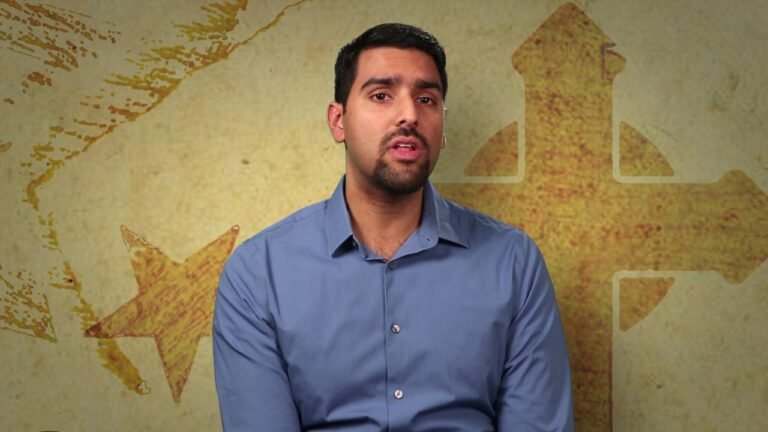The Significance of Ecumenical Councils
Ecumenical councils have played a crucial role in shaping the history and doctrine of the Christian Church. These gatherings of bishops and theologians have addressed significant theological and practical issues, and their decisions have had a lasting impact on the faith and practices of millions of believers. From the early councils of Nicaea and Chalcedon to the more recent Second Vatican Council, ecumenical councils have been a forum for debate, consensus, and the development of core Christian beliefs. In this article, we will explore the significance of ecumenical councils and their enduring influence on the Christian faith.
How many ecumenical councils have been held in the history of the Christian Church?
Throughout the history of the Christian Church, a total of 21 ecumenical councils have been held. These councils, attended by bishops and other church leaders, were convened to address important theological and doctrinal issues facing the Church at the time. From the Council of Nicaea in 325 AD to the Second Vatican Council in the 1960s, these gatherings have played a significant role in shaping the beliefs and practices of Christianity.
What is the purpose of ecumenical councils and how are decisions reached during these meetings?
Ecumenical councils serve as gatherings of leaders from various Christian denominations to discuss and make decisions on important theological matters. These councils aim to promote unity and understanding among different branches of Christianity, as well as to address issues that affect the entire Christian community. Decisions reached during these meetings are typically made through a process of debate, discussion, and ultimately a vote by the attending members.
During ecumenical councils, decisions are reached through a combination of prayer, dialogue, and the guidance of the Holy Spirit. Participants engage in respectful and open-minded conversations, seeking to reach a consensus on doctrinal issues and theological questions. Ultimately, the goal of these councils is to uphold the teachings of the Christian faith while also fostering unity and cooperation among believers of different traditions.
Uniting the Church: A Closer Look at Ecumenical Councils
In the rich history of Christianity, Ecumenical Councils have played a crucial role in shaping the beliefs and practices of the Church. These gatherings of bishops and theologians from around the world have sought to address theological controversies, establish doctrine, and promote unity among different branches of Christianity. By examining the decisions and debates that occurred during these councils, we gain a deeper understanding of how the Church has navigated complex theological issues and worked towards a common understanding of the faith.
Through the centuries, Ecumenical Councils have provided a platform for dialogue and discussion, allowing diverse voices within the Church to come together in pursuit of truth and unity. Despite the challenges and disagreements that have arisen during these gatherings, the ultimate goal has always been to strengthen the bonds of fellowship and solidarity among believers. By taking a closer look at the history and outcomes of these councils, we can appreciate the efforts made by the Church to overcome divisions and uphold the core teachings of the Christian faith.
Resolving Religious Differences: The Role of Ecumenical Councils
In the pursuit of unity and understanding among different religious groups, ecumenical councils play a crucial role. These gatherings bring together leaders and representatives from various faith traditions to engage in dialogue, address theological differences, and seek common ground. By fostering open communication and collaboration, ecumenical councils pave the way for reconciliation and mutual respect.
Through respectful dialogue and a commitment to finding common ground, ecumenical councils have the power to bridge divides and promote harmony among diverse religious communities. By acknowledging and addressing areas of disagreement, participants can work towards solutions that honor the unique beliefs and traditions of each group while also promoting greater understanding and cooperation.
Ultimately, ecumenical councils serve as a catalyst for building bridges and fostering understanding among different religious traditions. By coming together in the spirit of cooperation and respect, participants can work towards resolving religious differences and creating a more harmonious and inclusive global community.
Shaping Christian Doctrine: Insights from Ecumenical Councils
Throughout history, Ecumenical Councils have played a crucial role in shaping Christian doctrine. These gatherings of bishops from various regions have provided a platform for theological discussions and decision-making on matters of faith. By bringing together diverse perspectives and expertise, these councils have been instrumental in clarifying and defining core beliefs of the Christian faith, such as the nature of the Trinity and the divinity of Christ.
The insights gained from Ecumenical Councils have not only strengthened the unity of the Christian Church but have also helped to preserve the integrity of Christian doctrine in the face of theological challenges. The careful deliberations and resolutions made at these councils have served as a foundation for the development of Christian theology and have continued to guide believers in their understanding of the faith. As we reflect on the significance of these councils, we are reminded of the importance of engaging in dialogue and seeking consensus within the Church to uphold and proclaim the timeless truths of the Christian faith.
From Nicaea to Vatican II: Exploring Ecumenical Councils
The history of ecumenical councils spans centuries, from the First Council of Nicaea in 325 AD to the Second Vatican Council in the 1960s. These gatherings of bishops and theologians have shaped the course of Christianity, addressing theological disputes, defining doctrines, and establishing guidelines for the Church. From the affirmation of the Nicene Creed to the reforms of Vatican II, ecumenical councils have been pivotal in uniting the diverse branches of Christianity and guiding the faithful in their beliefs and practices.
In summary, ecumenical councils have played a crucial role in shaping the beliefs and practices of the Christian faith. Through their discussions and decisions, these councils have addressed theological controversies, established doctrinal boundaries, and fostered unity among diverse Christian communities. The impact of their decrees continues to resonate throughout the centuries, serving as a testament to the enduring significance of ecumenical dialogue and collaboration in the pursuit of a common faith.







